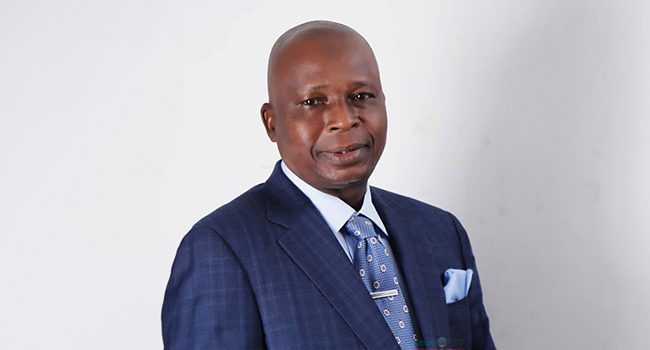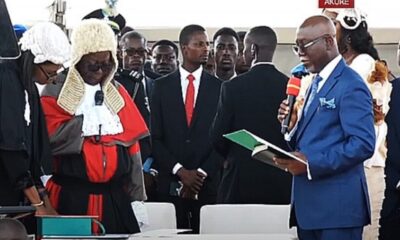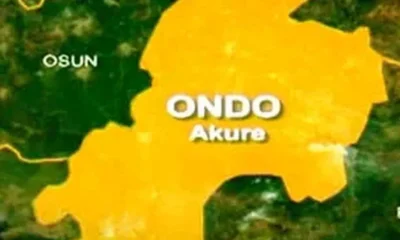Inside Nigeria
Ondo knocks AGF over LG autonomy suit

The Ondo State Government has blasted the Attorney General of the Federation (AGF) and Minister of Justice, Lateef Fagbemi, SAN, over local government autonomy.
The state has also followed the order by sending a response to the Supreme Court, including a Notice of Preliminary Objection.
Dr. Olukayode Ajulo, SAN, the Ondo State Attorney General and Commissioner for Justice, filed a response on behalf of the state, which was one of the respondents’ first submissions.
In the preliminary objection, Dr. Ajulo requested that the Supreme Court dismiss the lawsuit, citing incompetence and lack of merit.
Amongst the 27 grounds raised by the senior lawyer are that the apex court lacked jurisdiction to entertain the suit on the grounds that the AGF lacked the necessary legal authority to initiate the suit in the first place; in addition to being a “meddlesome interloper”.The AGF had on behalf of the federal government sued the 36 states governments over the manner in which the local governments are being ministered.The AGF in the suit filed last month is specifically seeking the transfer of funds accrued to LGs directly to them as well as removing state governors powers of appointing caretaker committees to run the LGs in the states of the federation.
Responding, Ajulo in the motion on notice, submitted that the Minister of Justice lacked “locus standi” to institute the suit for the local governments.Further objecting, the Commissioner for Justice, argued that the suit was filed in flagrant violation of Section 232 of the 1999 Constitution, Section 1 of the Supreme Court Act 3, 2002 and Order 3, Rule 6 of the Apex Court.
According to the 28th respondent (Ondo State), Section 232 of the Constitution only permitted the invocation of the original jurisdiction of the Supreme Court where there is a dispute between the federation as plaintiff and states as defendants which involves any question of law or fact on which the existence or extent of the legal right of either the federation or states depends.
Besides, he pointed out that the funds complained of by the plaintiff belong to local governments created by the constitution as a distinct and different tier of government independent of the federal government.Citing Section 162(3) of the 1999 Constitution, the Ondo State Government averred that any amount standing to the credit of the Federation Account shall be distributed among the federal and state governments and the local government Councils in each state on such terms and in such manner as may be prescribed by the National Assembly, adding that the sharing among the three distinct tiers is not a subject to the discretion or any terms and conditions of the federal government.
He further said that by the provisions of Section 162(8) of the 1999 Constitution, “the amount standing to the credit of local government Councils of a state shall be distributed among the local governments on such terms and in such manner as may be prescribed by the House of Assembly of the State,” adding that, the distribution or usage of the said funds of local governments especially in Ondo State, is not subject to the discretion or any terms and conditions to be prescribed by the federal government.
Insisting that by the provisions of Section 7(1) of the 1999 Constitution, the government of every state and not the federal government shall ensure the existence of democratically elected local government councils under a law made by the State House of Assembly and that the said law shall provide for the establishment, structure, composition, finance and function of such council.
The Ondo State Government claimed that pursuant to Section 7 (1) and 162(8) of the Constitution, its State House of Assembly, enacted a law to provide for local government system, establishment and administration and for ancillary matters known as the Local Government Administration, Conduct of Local Government Election and Allied Matters, Cap 87, Volume 2, Laws of Ondo State of Nigeria, 2006, it therefore insisted that by the combined provisions of the Constitution, the federal government has no right or obligation on the allocation and distribution of the funds standing to the credit of local governments in Ondo State and that no law has placed any obligation on the federal government I’m respect of the terms and manners local government funds should be allocated or distributed.
It described the federal government as a meddlesome interloper in the local governments affairs because it has no right or interest affected or likely to be affected by the action it complained against, adding that the proper and necessary parties for the purpose of invoking the original jurisdiction of the Supreme Court are not before the court.
The move by the Federal Government to grant autonomy to local governments has been denounced as a violation of the fundamental principles of the rule of law, democracy, separation of powers, and true federalism, as enshrined in the constitution. Furthermore, the lawsuit filed by the FG has been labeled as a blatant abuse of the judicial process, as the Supreme Court is not the suitable forum for resolving disputes between the federal government and state governments.
The Ondo State Government has petitioned the Supreme Court to dismiss the Federal Government’s lawsuit.
Meanwhile the Apex Court will hear the matter on June 13.
































